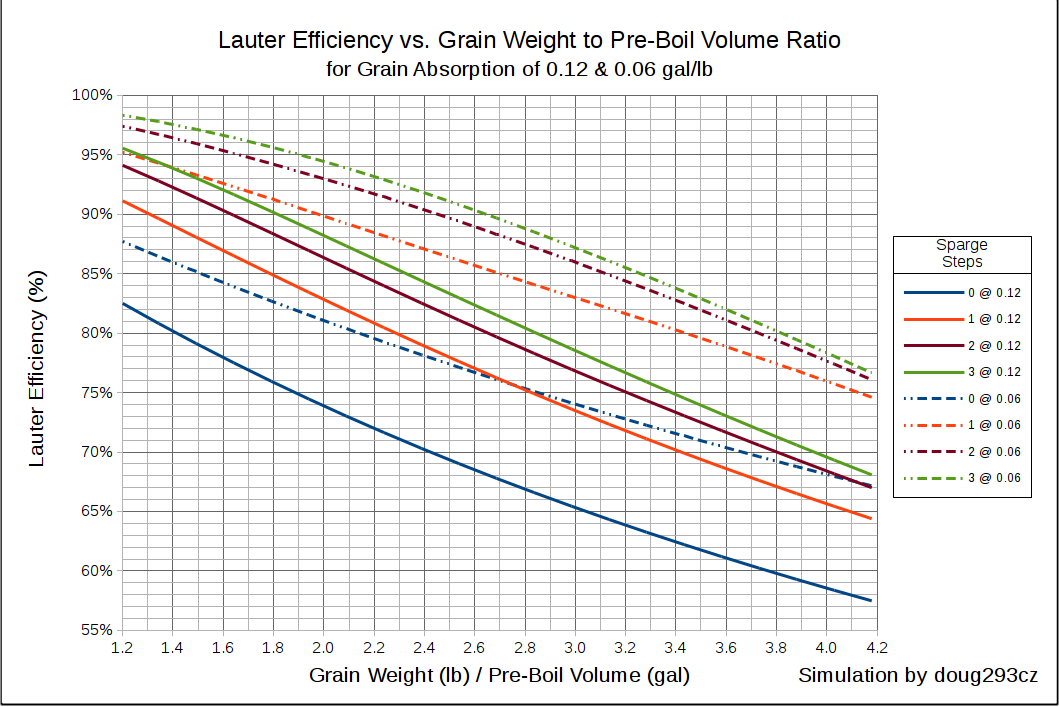Beerhog
Member
- Joined
- Aug 3, 2020
- Messages
- 16
- Reaction score
- 2
So after many extract brews I moved to partial biab method. I`m still new to this style of brewing and I got some questions. Normally I mash the grain than hoist the bag, let it drain and than put it on collander for sparging. I just had a thought, what if instead of sparging I would take the whole grain bag and dump it into sparge water and wash the grain in sparge water?
Would the mash efficiency be improved by any significant amount? All Biab guides I read don't even sparge, but this seems like a waste of sugars to me. Also, how big of a pot would i need to upgrade to be able to brew virtually any 5 gal batch recipe? Let's say any recipe up to 1.065 OG pure all grain? I'm slowly testing the limits of my 5 gal stock pot and got to mash 7.5 lbs of grain in it, and with about 1 lb of table sugar i can make 5 gals of 1.050 wort.
Would the mash efficiency be improved by any significant amount? All Biab guides I read don't even sparge, but this seems like a waste of sugars to me. Also, how big of a pot would i need to upgrade to be able to brew virtually any 5 gal batch recipe? Let's say any recipe up to 1.065 OG pure all grain? I'm slowly testing the limits of my 5 gal stock pot and got to mash 7.5 lbs of grain in it, and with about 1 lb of table sugar i can make 5 gals of 1.050 wort.

























![Craft A Brew - Safale BE-256 Yeast - Fermentis - Belgian Ale Dry Yeast - For Belgian & Strong Ales - Ingredients for Home Brewing - Beer Making Supplies - [3 Pack]](https://m.media-amazon.com/images/I/51bcKEwQmWL._SL500_.jpg)
























